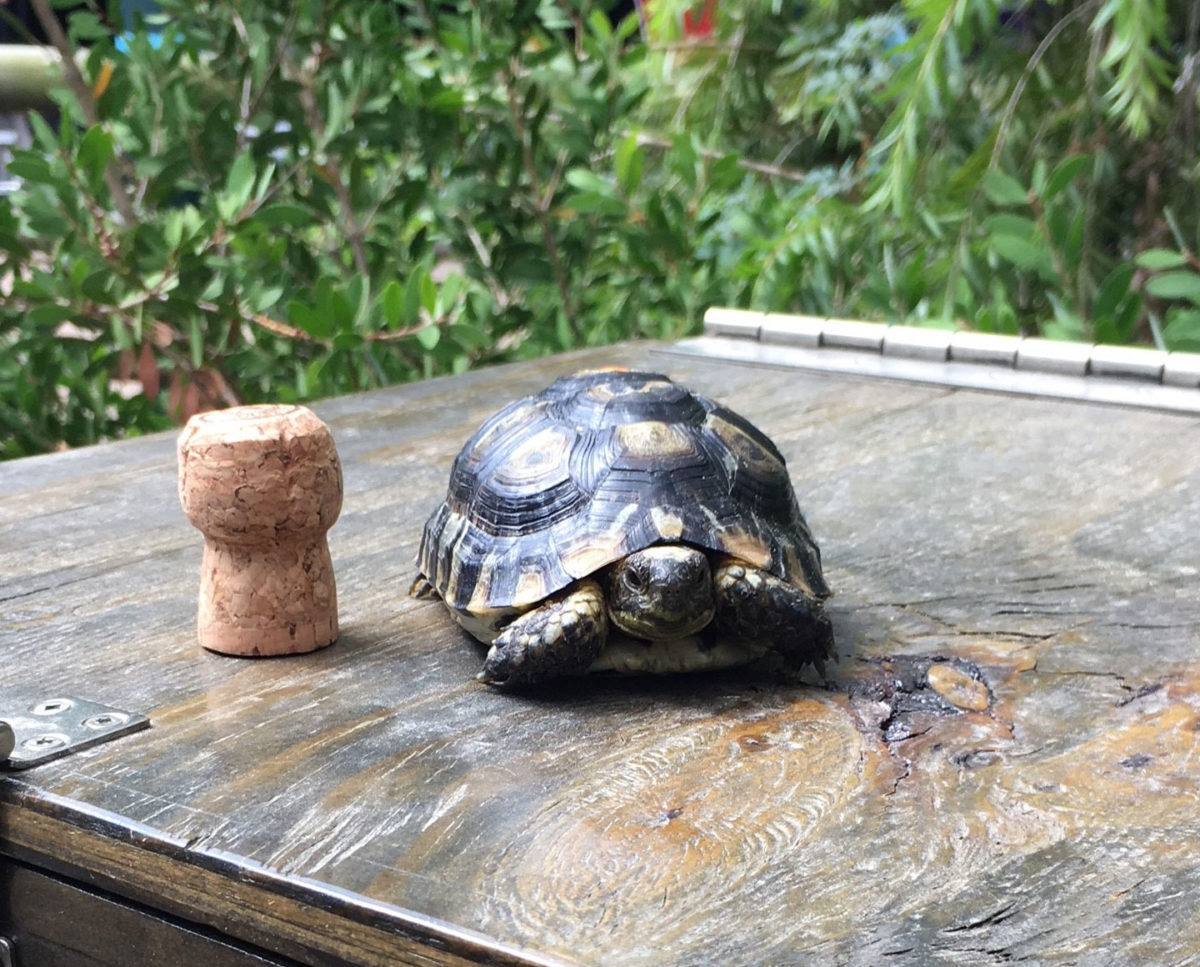Recycling Corks to Save Animals in the Wild!
Easy action: Recycle your natural and synthetic wine corks!
The Houston Zoo has recently partnered with a cork recycling company to help create positive environmental change by collecting and re-purposing natural wine corks used at Zoo events. Already this year, the Houston Zoo has recycled approximately 300 corks, from events like the Conservation Gala and Feast with the Beasts!
Did you know that 13 billion natural wine corks are produced every year?! The majority of these natural wine corks are produced from the Mediterranean cork forests of Portugal. These forests contain one of the world’s highest levels of forest biodiversity, including endemic plants and endangered species such as the Spur-thighed tortoise (pictured with a natural cork), Iberian Lynx, the Iberian Imperial Eagle and the Barbary Deer.

No trees are cut down to make cork. Instead, the spongy bark is stripped every nine years at harvest time. And with each harvest the average tree produces enough cork for 4,000 wine bottles. The demand for natural cork creates a demand for these trees to be kept in place, providing homes for animals, like the Spur-thighed tortoise (again, pictured above).
Ultimately, natural cork is better for the environment as long as it is recycled!
So how do you tell if the wine you buy is stopped with natural cork or synthetic cork? You can use ReCORK’s CORKwatch website to check! Here is the link: https://recork.org/corkwatch
And be sure to recycle your corks when done, you can recycle your corks at Spec’s or check with your local liquor store!
